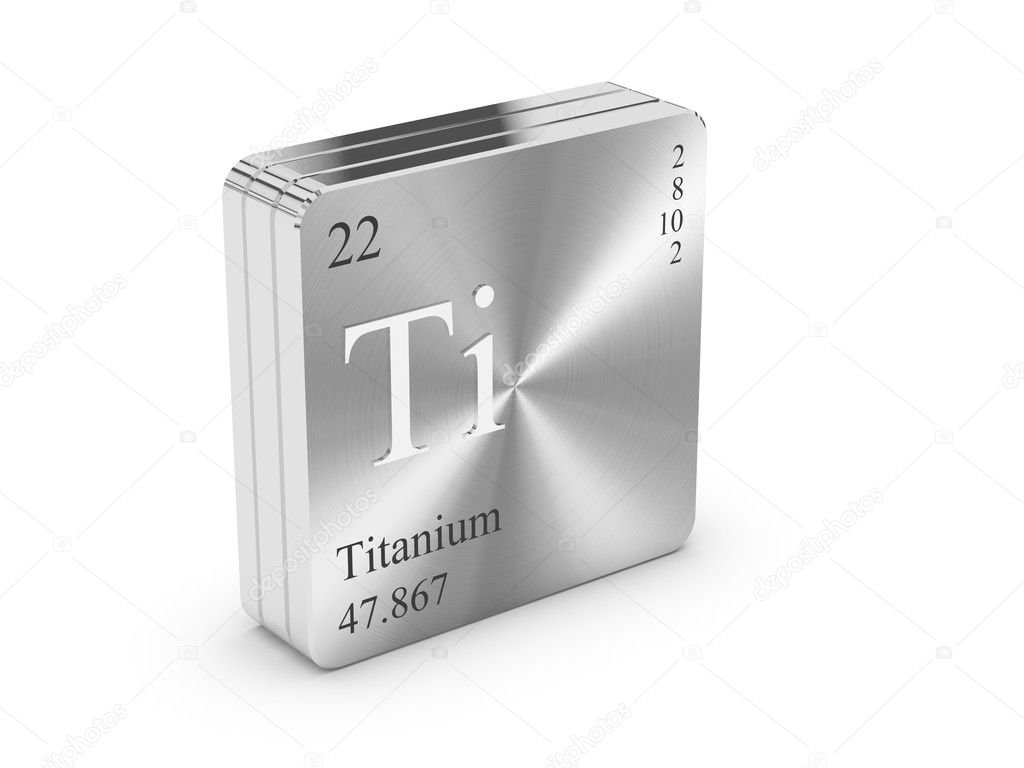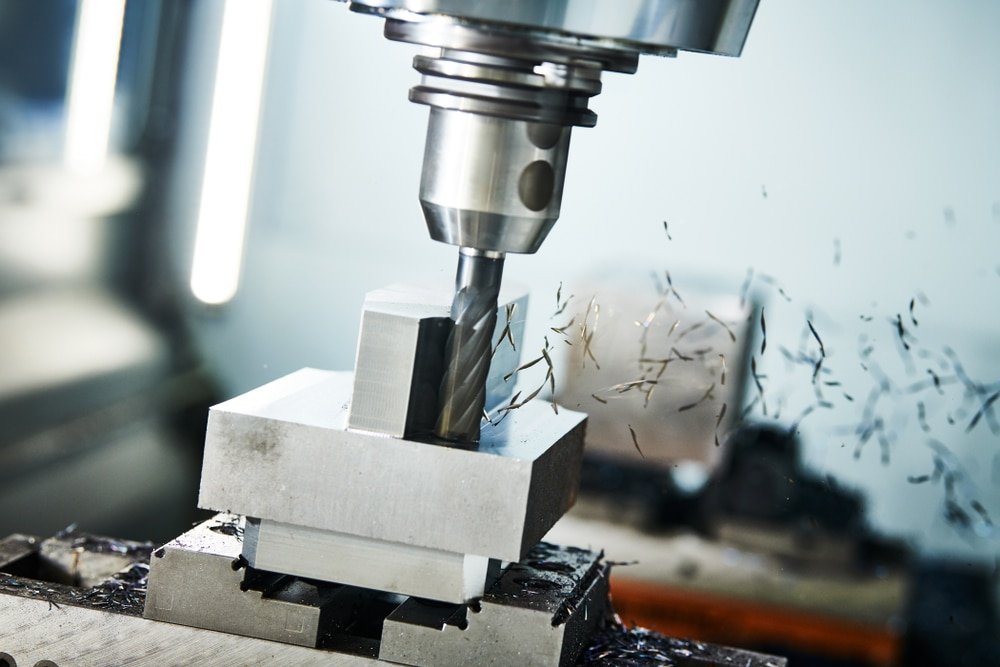Understanding the significance of titanium in various industries is crucial due to its exceptional properties and wide-ranging applications. Titanium, a metallic element known for its strength, durability, and corrosion resistance, plays a vital role in modern technology, from aerospace engineering to medical devices.
Exploring its physical properties and diverse uses unveils a fascinating realm of possibilities. Let’s delve into what is titanium, its distinctive characteristics, and the myriad applications that make it indispensable in today’s world.
What is Titanium?
Titanium, boasting atomic number 22, shines as a silvery-white metal renowned for its remarkable qualities. This lightweight, ductile material stands strong against corrosion, while also earning acclaim for its biocompatibility and impressive strength-to-weight ratio.
Ranking as the 9th most abundant element on Earth, titanium is a prevalent presence in rocks, clay, and sand. Extracted primarily from rutile and ilmenite, two commercially significant minerals, titanium undergoes refinement to yield its diverse forms: alpha-alloys, beta-alloys, and alpha-beta alloys.
Among these, titanium alpha alloys, often combined with oxygen and alloyed with metals like aluminum, molybdenum, and vanadium, achieve sought-after attributes such as heightened strength, corrosion resistance, and reduced weight.
Its versatility finds expression in numerous applications, spanning from aerospace and commercial sectors to power plants, desalination facilities, marine environments, architectural projects, medical implants like joint replacements, and even consumer goods such as golf clubs and bicycle frames.
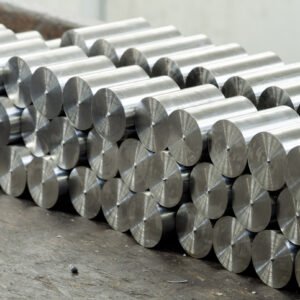
How is Titanium Created?
Pure titanium isn’t naturally occurring due to its propensity to react with oxygen. Instead, it’s prevalent in the Earth’s composition within rocks, clay, sand, and various minerals, primarily as titanium dioxide.
Rutile and ilmenite stand out as the key minerals utilized in commercial titanium production, though anatase, perovskite, brookite, and titanite also contain this valuable element. Refinement processes can extract pure titanium from each of these mineral sources.
The Kroll Process represents the predominant method for producing pure titanium. This process is initiated by heating ores like rutile or ilmenite, yielding liquid titanium tetrachloride (TiCl4). Subsequent purification via fractional distillation, akin to the process used in refining crude oil into gasoline, separates impurities from the TiCl4 liquid.
Following distillation, molten magnesium is introduced to the purified TiCl4, resulting in a porous titanium “sponge” and a magnesium-based salt byproduct. The titanium sponge undergoes compression and melting within an arc furnace, ultimately culminating in the casting of pure titanium ingots. For alloy production, other metals are introduced to the pure titanium melt before casting into ingots.
What Qualities Make Titanium So Special?
What distinguishes titanium are its varied features, contingent upon the grade and alloy. Below, we outline some general characteristics:
- Corrosion Resistance: Titanium exhibits exceptional resistance to corrosion from seawater, chlorine, and various corrosive agents, rendering it valuable in marine and chemical processing sectors.
- Lightweight: With a low density compared to many metals, titanium finds favor in crafting lightweight structures and components, particularly in aerospace and automotive industries.
- High Strength: Surpassing steel in strength, titanium structures weigh approximately 45% less due to its lower density. Its remarkable strength-to-weight ratio makes it indispensable in aerospace, automotive, medical, and marine applications.
- Biocompatibility: Recognized as the most biocompatible metal, titanium boasts inertness, resistance to bodily fluids’ corrosion, osseointegration capability, and a high cyclic fatigue limit. Hence, it’s widely used in bone, joint, and dental implants.
- Heat Resistance: Titanium’s low thermal conductivity suits it for high-heat applications in machining, spacecraft, jet engines, missiles, and automobiles.
- Nonmagnetic: While inherently nonmagnetic, titanium exhibits paramagnetism in a magnetic field.
- Ductility: Titanium’s ductility improves with elevated temperatures, further enhanced when alloyed with ductile metals like aluminum.
- Low Thermal Expansion: With a low coefficient of thermal expansion, titanium’s minimal expansion at extreme temperatures makes it ideal for structural applications, especially in aerospace, spacecraft, and fire-prone buildings.
- Excellent Fatigue Resistance: Titanium’s outstanding fatigue resistance is crucial in aerospace applications where cyclic loading is common, ensuring reliability in critical aircraft components such as landing gear and hydraulic systems.

What are The Typical Grades of Titanium
- Grade 1: The softest and most ductile pure titanium grade, Grade 1 offers superior formability. Frequently utilized in plating, piping, tubing, and applications prioritizing formability and weldability.
- Grade 2: The most commonly used commercially pure grade, Grade 2 contains 0.3% iron, enhancing its strength compared to Grade 1. Noted for its affordability, ductility, and weldability, frequently found in power generation and petroleum industries.
- Grade 3: Stronger than Grades 1 and 2, Grade 3 is less ductile and formable but finds use in cryogenic vessels, condenser tubing, heat exchangers, and chemical processing equipment.
- Grade 4: The strongest commercially pure titanium, Grade 4 rivals stainless and low-carbon steel in strength. Its strength and corrosion resistance make it prevalent in aerospace, chemical processing, and marine applications.
- Grade 5 or Ti 6Al-4V: This widely used titanium alloy boasts exceptional strength, heat resistance, heat treatability, formability, and corrosion resistance. Known for its prevalence in aerospace, automotive, and medical industries.
- Grade 6 or Ti 5Al-2.5Sn: With enhanced creep resistance and temperature stability due to aluminum and tin additions, Grade 6 is preferred for higher service temperatures. Often employed in turbine engines, aircraft structural members, and chemical processing parts.
- Grade 7: Nearly identical to Grade 2 but with added palladium, Grade 7 exhibits the highest corrosion resistance among titanium alloys. Renowned for its weldability and forming properties, commonly used in chemical manufacturing and desalination.
- Grade 11: Also known as CP Ti-0.15Pd, Grade 11 is commercially pure titanium akin to Grades 1 and 2. It offers augmented crevice corrosion resistance, high ductility, impact toughness, and weldability. Widely used in chemical processing and storage, ducts, pumps, and heat exchangers.
- Grade 12 or Ti 0.3-Mo 0.8-Ni: Renowned for durability, corrosion resistance, and thermal stability, Grade 12 is valued for its weldability and formability. Commonly employed in marine components, chemical manufacturing, and heat exchangers.
- Grade 23 or Ti 6AL-4V ELI: Known for high tensile and yield strength, toughness, ductility, and weldability, Grade 23 is considered a purer version of Grade 5. Ideal for dental and medical applications, including bone and joint replacements, surgical staples, and tooth implants.
Which Grade of Titanium is The Best?
Grade 5 (Ti 6Al-4V) stands out as the most versatile option owing to its array of advantageous properties. With high strength, ductility, corrosion resistance, thermal stability, and exceptional formability, Grade 5 titanium excels across diverse industries and applications. From automotive and aerospace components to sporting goods and consumer products, its versatility makes it a preferred material.
Physical Properties of Titanium
- Density: Titanium boasts a density of 4.506 g/cm3.
- Strength: Titanium’s strength varies depending on the grade and alloy concentration, ranging from 240 MPa (commercially pure Grade 1) to 1241 MPa (Ti-10V-2Fe-3Al alloy).
- Color: Titanium displays a lustrous, silvery-white hue.
- Ductility: Titanium exhibits ductility ranging from 6% elongation (Ti-3Al-8V-6Cr-4Zr-4Mo) to 25% (Commercially Pure Grade 1).
- Durability: With high tensile yield strength, hardness, and excellent fatigue resistance, titanium proves highly durable, promising a long expected lifespan.
Chemical Properties of Titanium
- Oxidation Potential: Titanium’s oxidation potential arises from its electron configuration and transition metal classification, leading to its presence as oxides in rocks and minerals rather than in pure form in nature.
- Ability to Form Alloys: Thanks to its atomic size and transition metal classification, titanium readily forms alloys with various metals and elements, resulting in numerous titanium alloys.
- Reactivity: Titanium exhibits reactivity to acids and halogens at high temperatures, yet remains entirely non-reactive to bases.
- Corrosion Resistance: Naturally corrosion-resistant, titanium’s tendency to react with oxygen and nitrogen leads to the formation of protective oxides on its surface, safeguarding it against corrosive agents.
Benefits of Titanium
- High Strength: Titanium ranks among the strongest metals on the periodic table, boasting an exceptional strength-to-weight ratio surpassing even aluminum. Its strength combined with low weight renders it a favored choice across various industries.
- Corrosion Resistance: Naturally resistant to corrosion, titanium forms a protective oxide layer when exposed to air, shielding it from corrosive elements and environments. This corrosion resistance makes it ideal for construction and marine applications.
- Biocompatibility: Non-toxic and biocompatible with humans and animals, titanium finds extensive use in the medical and dental sectors, particularly for implants and surgical instruments.
- High Melting Point: With a melting point around 3,034 °F, titanium excels in high-temperature applications such as jet engines, rockets, power plants, and foundries.
- Versatile Fabrication: Despite its exceptional strength, titanium’s soft and ductile nature allows for fabrication through various manufacturing processes including machining, forming, rolling, casting, and welding.
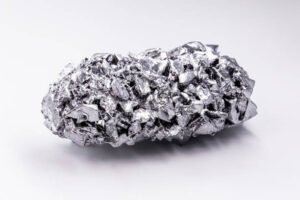
Limitations of Titanium
- Reactive at High Temperatures: While generally inert, titanium becomes reactive at temperatures exceeding 700 °F, necessitating precise control during fabrication processes, typically conducted in oxygen-free environments.
- Expensive: Titanium’s refining process from raw minerals is complex and costly due to its reactivity at high temperatures and the intricacies of the Kroll process, which isolates titanium.
- Difficult Machining: Titanium’s low thermal conductivity can pose challenges during machining, as heat accumulates in the tool rather than the workpiece, potentially reducing tool life and machining quality.
- Low Creep Resistance: Titanium exhibits low creep resistance at temperatures above 570 °F, making it susceptible to slow deformation under constant loads, particularly in high-temperature environments.
Applications of Titanium
Jewelry
Titanium’s durability, lightweight nature, and corrosion resistance make it a popular choice for crafting various jewelry items such as piercings, wristwatches, necklaces, and rings. It’s often alloyed with gold to create 24-karat gold alloys, enhancing their hardness and durability, particularly suitable for individuals allergic to metals like nickel.
Medical
Titanium plays a pivotal role in the medical field owing to its high strength, fatigue resistance, and biocompatibility. It’s utilized in surgical and dental tools, implants, and joint replacements, facilitating osseointegration and enabling durable, long-lasting prosthetics with better patient outcomes.
Industrial
Renowned for its high strength, fatigue resistance, corrosion resistance, lightweight, and durability, titanium finds widespread use in various industrial applications. From heat exchangers to tanks, reactors, valves, pipes, connecting rods, and pumps, its versatility caters to diverse industrial needs.
Aerospace
Titanium’s low density, high strength-to-weight ratio, corrosion resistance, and fatigue resistance make it an excellent choice for aerospace components. Nearly 50% of an aircraft’s total weight can be attributed to titanium, used in critical parts like landing gear, firewalls, and hydraulic systems.
Architectural
With its lightweight nature, high strength, corrosion resistance, and durability, titanium is favored for architectural products such as glass frames, facades, roofs, interior wall surfaces, and ceilings, complementing steel in building frames.
Composites
Titanium-based composites leverage its strength and weight characteristics to produce advanced materials with higher stiffness, wear resistance, and strength than conventional alloys. While still relatively new, these composites are gaining traction in aerospace and automotive applications.
Automotive Industry
Titanium finds application in engine parts, crankshafts, valve seats, connecting rods, exhaust systems, suspension systems, and automotive frames in the automotive industry. Its low density, high strength-to-weight ratio, corrosion resistance, and heat resistance contribute to improved aerodynamics, performance, and cost-effectiveness in manufacturing.
Chemical Processing
Titanium’s corrosion resistance and chemical inertness make it a staple in the chemical processing industry. Used in pipes, flanges, tubing, tanks, pumps, and heat exchangers, titanium remains stable at lower temperatures and offers reliability in harsh chemical environments.
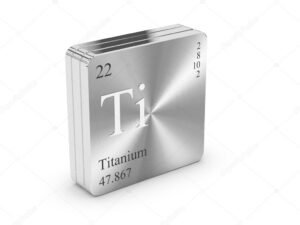
FAQ
How does the cost of titanium compare to other metals
Titanium generally tends to be more expensive than most other common metals like steel or aluminum. Its higher cost is primarily due to its scarcity, extraction process, and the complex refining techniques required to produce pure titanium.
Additionally, titanium’s desirable properties, such as its exceptional strength-to-weight ratio, corrosion resistance, and biocompatibility, contribute to its higher price tag. However, despite its cost, titanium’s unique characteristics make it indispensable in various industries
How does the thermal conductivity of titanium compare to other metals
The thermal conductivity of titanium is generally lower compared to many other metals. Metals like copper and aluminum have significantly higher thermal conductivity than titanium. This means that titanium is not as efficient at conducting heat as these other metals.
However, titanium’s lower thermal conductivity can be advantageous in certain applications where heat retention or insulation is desired, such as in aerospace components or thermal barriers.
Does Titanium rust?
Titanium does not rust in the same way as iron and steel do. Instead of forming iron oxide (rust), titanium forms a protective oxide layer when exposed to oxygen, which prevents further corrosion. This oxide layer makes titanium highly resistant to corrosion from moisture, saltwater, and many chemicals, which is one of its key advantages in various applications, especially in industries like aerospace, marine, and biomedical.
How is titanium different from steel in terms of weight?
Titanium is significantly lighter than steel. On average, titanium has about half the density of steel, which means that for the same volume of material, titanium will weigh about half as much as steel. This property of titanium makes it highly desirable in applications where weight savings are critical.
Read more: What Is the Difference between Titanium vs Stainless Steel?
Conclusion
Overall, MaTec Vietnam trust that this exploration into the world of Titanium has provided valuable insights and knowledge. If you have any further inquiries or require assistance with Titanium-related endeavors, do not hesitate to reach out to our team at MaTec Vietnam. We are here to provide support, guidance, and expertise to help you leverage Titanium effectively and achieve your objectives

